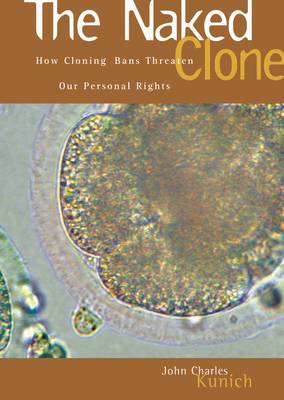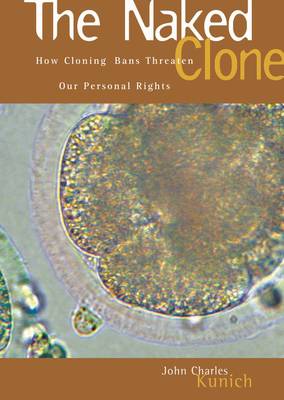
- Retrait gratuit dans votre magasin Club
- 7.000.000 titres dans notre catalogue
- Payer en toute sécurité
- Toujours un magasin près de chez vous
- Retrait gratuit dans votre magasin Club
- 7.000.0000 titres dans notre catalogue
- Payer en toute sécurité
- Toujours un magasin près de chez vous
Description
Banning therapeutic and reproductive cloning jeopardizes more than cloning itself. The constitutional principles intertwined with cloning embrace such vital liberties as personal autonomy, privacy, reproduction, and freedom of expression. Properly understood, cloning is essentially the same as other forms of assisted reproduction. Procrustean bans on cloning implicate and indirectly threaten numerous key personal interests, including abortion, in vitro fertilization, same-sex adoption, and surrogacy. A government allowed to preemptively isolate and censor medico-scientific research into cloning may be emboldened to shut down other forms of disfavored inquiry and expression as well.
Much of the animosity toward cloning is based on unfounded fear, science-fiction fantasy, moralistic bias, and slippery slope predictions, most of which is scientifically untenable or already illegal. Yet when people are cloned, they will in fact be less similar than identical twins; genetics aren't everything. Differing environments produce differing people, and human clones--distinct individuals--will be entitled to the same human rights and legal protections that have protected individuals for centuries. Kunich establishes the pressing need to evaluate cloning in a rational scientific and legal manner, before the extreme opposition sprouting from fear and misunderstanding, which has already led to several state laws, results in an unconstitutional federal ban.Spécifications
Parties prenantes
- Auteur(s) :
- Editeur:
Contenu
- Nombre de pages :
- 192
- Langue:
- Anglais
Caractéristiques
- EAN:
- 9780275979645
- Date de parution :
- 30-06-03
- Format:
- Livre relié
- Format numérique:
- Genaaid
- Dimensions :
- 155 mm x 246 mm
- Poids :
- 444 g

Les avis
Nous publions uniquement les avis qui respectent les conditions requises. Consultez nos conditions pour les avis.






